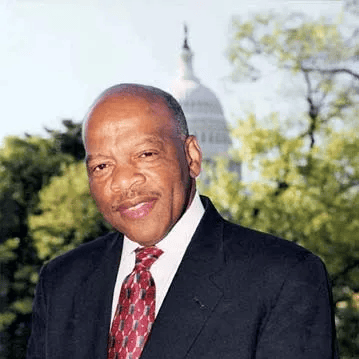Established in 2021, the prize is offered annually to recognize individuals outside the ranks of professional historians who have made a significant contribution to the study, teaching, and public understanding of history, in the interest of social justice. The prize was established with an endowment gift from the Agentives Fund and replaces the Association’s Roosevelt-Wilson Award for Public Service, which was presented to Congressman Lewis in 2006.
The current prize amount is $1,000.
According to the selection criteria, recipients can be individuals or collaborative groups. They may include persons who have made a significant contribution to the support and encouragement of history through their actions. Such noteworthy activity may include advocacy for historical work and the importance of history to public culture and social justice, philanthropy, support for organizations that promote history in public life, historic preservation, or other work that cultivates public awareness of history and its value to public culture.
The executive director and the AHA president will serve as the jury and will recommend nominees to the AHA Council. The AHA Council will make the final selection of the honoree(s) at its June meeting. The recipients will be announced at the Association’s annual meeting.

John Lewis
The prize is named in memory of John Lewis (1940–2020), the civil rights leader who represented Georgia with grace and distinction in the United States House of Representatives for 34 years. All of us, insisted Lewis, must “study and learn the lessons of history because humanity has been involved in this soul-wrenching, existential struggle for a very long time.”
Past Recipients
Current Recipient
Sidney Lapidus, Gilder Lehrman Institute of American History
Sidney Lapidus’s lifelong dedication to history has encompassed service as a collector, board leader, founder, and benefactor of numerous historical organizations. His guiding vision—that history is essential to our civic future—has inspired transformative contributions that advance access to sources, encourage scholarship, and strengthen
the discipline. Throughout his career, Lapidus has demonstrated a strategic vision grounded in his conviction that history matters. His investments of time, energy, and resources have strengthened the foundations of the discipline while inspiring historians to pursue ambitious new directions. For his unmatched dedication to ensuring history’s vitality in public life, the AHA proudly honors Sid Lapidus with the John Lewis Award for Public Service to History.